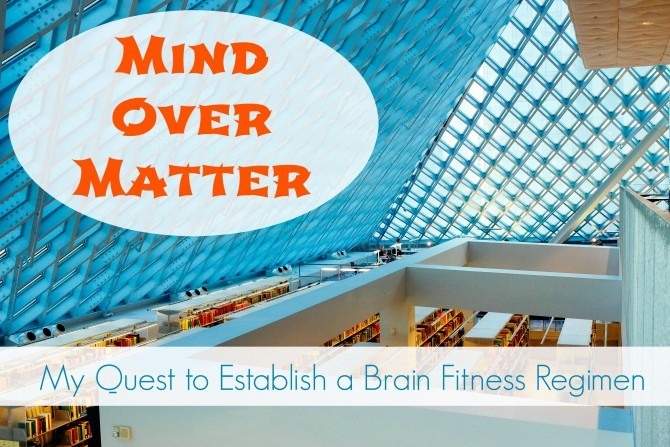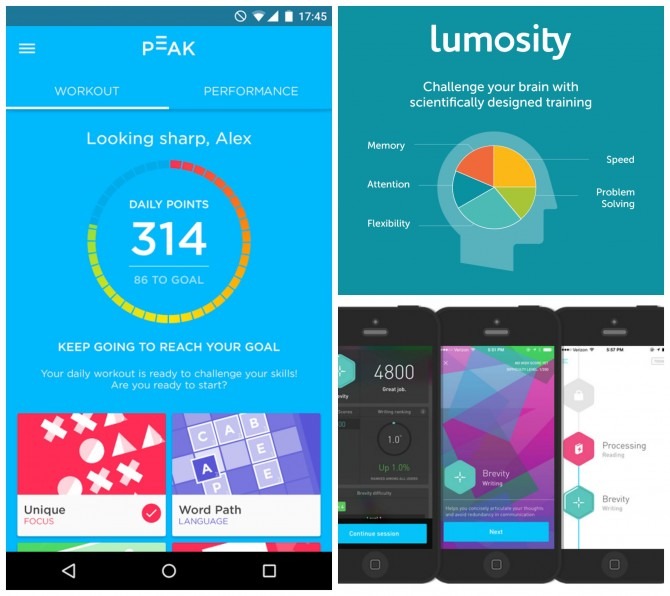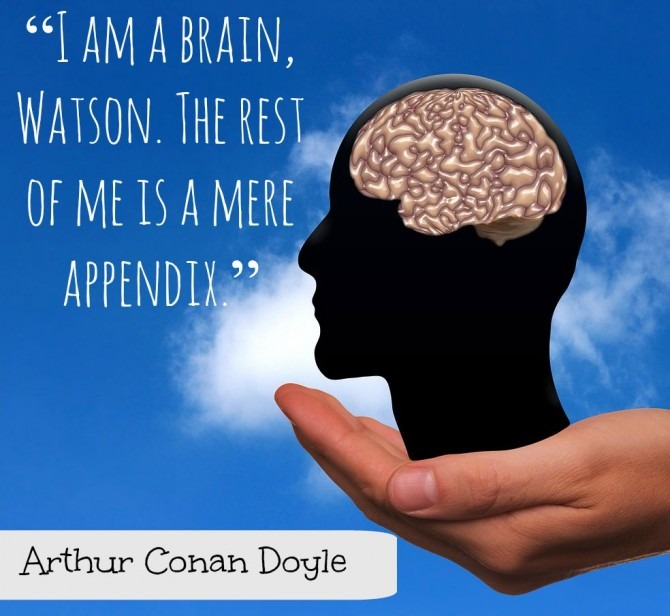An interesting question was recently posed by a member of a Facebook group I’m a part of: what are the topics you CANNOT stop talking about? Faithful readers of my blog can probably guess my responses: baby names, personality types, books, podcasts…. For the past few months, a new subject has been added to the mix: brain fitness.
I’m not sure how this current obsession got started, but I think I can trace it back to my reading of a James Altucher article on becoming an idea machine. The post got me thinking about how my mind is my most valuable asset and how I need to begin treating it with the care and respect it deserves. Altucher reminded me of something I knew but had forgotten: that my brain, like any muscle, needs regular exercise in order to preserve its capacity for creativity. I took up Altucher’s recommended habit of coming up with 10 ideas each day (this week I passed the 100-day mark of being an Idea Machine) and I began exploring other ways of improving my mental fitness.
If you are like I was a few months ago, you may be fuzzy on the exact definition of brain fitness. Wikipedia defines it as “the ability to assimilate information, comprehend relationships, and develop reasonable conclusions and plans.” There are a number of ways to promote brain fitness, but lately I’ve been focusing on the area of cognitive training. Through my personal research into this subject, I learned that the field of cognitive training is a relatively new one. The website BrainTrain.com has this to say on the topic:
“Research has shown that systematic brain training produces real world benefits. Just a few years ago, experts believed that the brain was like a sealed black box, and you were stuck with whatever nature gave you at birth. Now we know that the brain can keep adapting and developing new abilities throughout your lifetime. This ability to reorganize and create new pathways is called neuroplasticity, and it’s the science behind cognitive training.”
Cognitive Training can take various forms. One popular new method of cognitive training is engaging in a daily regimen of computerized brain training exercises that work your memory, stimulate your brain, and challenge your mental muscles. The science behind these games is non-definitive, with studies having varying findings regarding their long-term effectiveness. But despite inconclusive evidence for their claims of brain enhancement, there is no shortage of apps that offer daily exercises designed as games. I’ve personally been exploring three of these apps—Peak, Elevate, and Luminosity—and I plan to write a full review of all three once I’ve had more time with them. With each of these programs, I’m seeing improvement in my training itself, but the verdict is still out on whether or not the skills addressed in my training will transfer to real life.
Though my daily brain training practices might not hold any long-term benefits for my brain fitness, I can say that I’m certainly enjoying the games; if nothing else, they provide a great diversion during late-night nursing sessions! And beyond their entertainment value, there are other benefits for these types of games. A recent study found that Tetris (which is similar to many brain training games) can weaken cravings for drugs, food and activities such as sex and sleeping when played just three minutes each day. Games have also been found to reduce stress, improve motivation, and contribute to happiness. Doctors have even begun prescribing games such as Candy Crush to traumatic-brain injury victims. (Game developer Jane McGonigal—who used games to recover from a concussion—has two books that examine these ideas.) So regardless of whether or not brain training can expand one’s brain, it’s far from a waste of time.
I’ll be continuing to explore—and write about!—this fascinating topic of brain fitness. I’m excited to see where the research lands on this area of brain training. In the meantime, I’ll continue to include brain exercises as part of my personal project to protect this precious commodity that is my brain.



[…] It was Jane McGonigal’s interview with Tim Ferriss that first introduced me to the topic of brain training, and I’m interested to read more about her story of how she used digital games to recover […]
[…] this on a subliminal level, but the lesson was elucidated for me in a rather obscure way: through brain training exercises. I’ve been working my way through the levels on one of my favorite games. Every new level has […]
[…] few weeks ago I shared my current obsession with the topic of brain fitness. In that post, I talked about how I’ve been exploring cognitive training as one way to increase my own mental […]
So interesting. I have not explored this topic or these games at all and I’m off to do it right now. I turned 42 this spring and I swear I get more forgetful each day! Thanks for the recommendations and I will look forward to your full reviews.